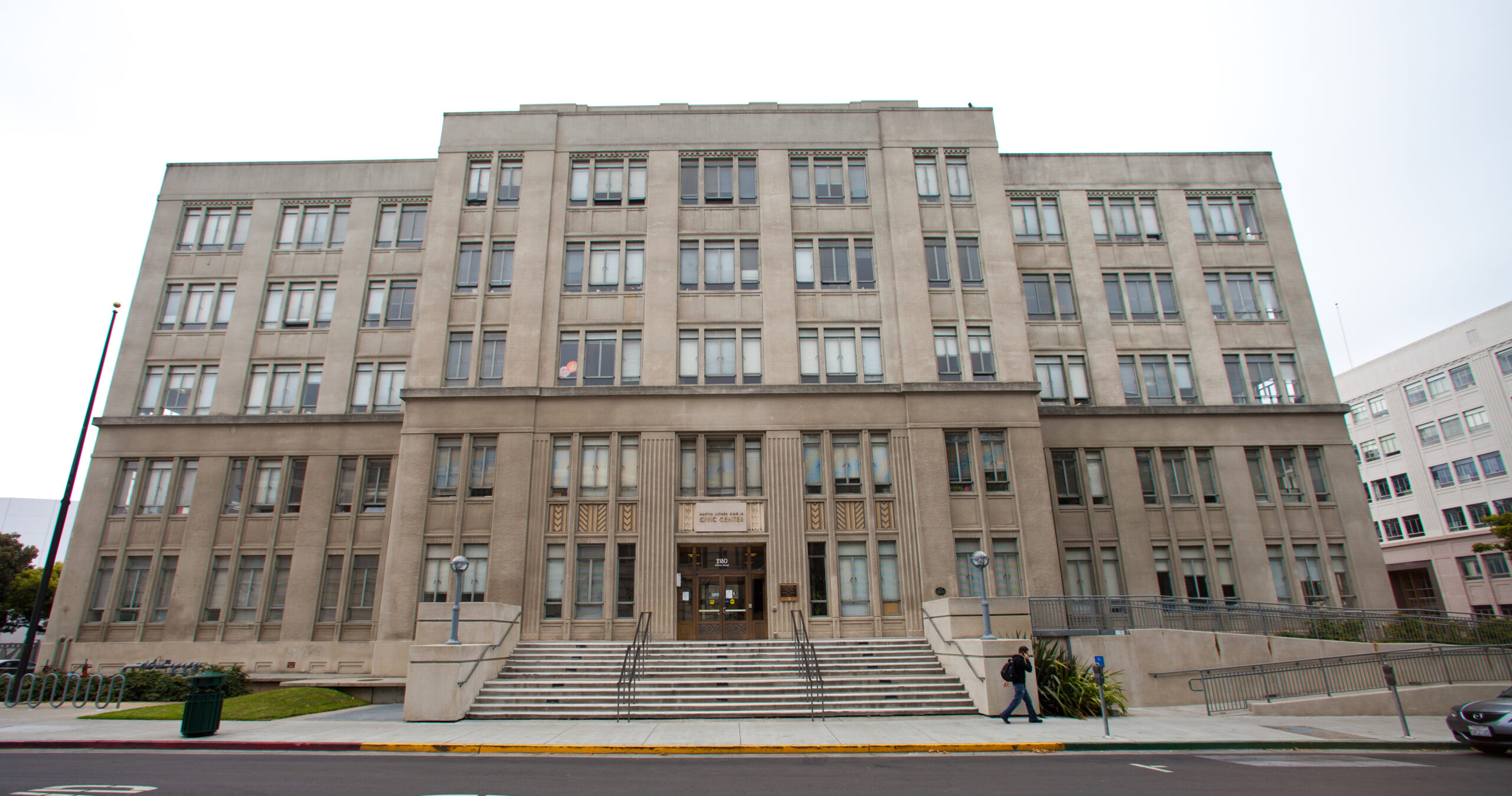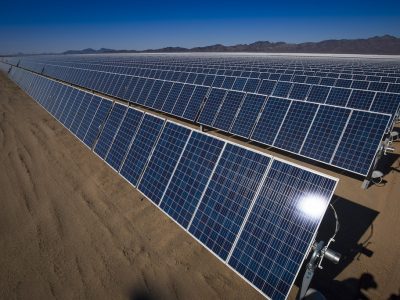What’s Next in the Fight over Berkeley’s Natural Gas Ordinance
In a petition seeking review of the decision, the City of Berkeley says that the opinion from a Ninth Circuit panel takes federal preemption too far.

The City of Berkeley just filed a petition for en banc review in its long-running litigation in defense of an ordinance it passed that restricts natural-gas infrastructure in new construction. This litigation has been watched by many in the climate-policy world because of the popularity of laws like Berkeley’s; it took on new relevance for local-authority advocates more generally when a Ninth Circuit panel struck it down on a sweeping reading of federal preemption. (UCLA’s Environmental Law Clinic, on behalf of seven law professors, filed an amicus brief in support of Berkeley’s position when the case was before the panel; I also wrote about the panel’s opinion when it came out.)
The three-judge panel ruled in April that the federal Energy Policy and Conservation Act (EPCA), which sets energy-conservation standards for specific appliances, preempts any state or local regulations that would “prevent[ EPCA-covered] appliances from using natural gas” (emphasis removed). This is based on a part of EPCA that, if an appliance can be regulated under EPCA, any state or local “regulation . . . concerning the energy efficiency, energy use, or water use” of that appliance is inoperative “with respect to such product.”
The ruling means that even laws like Berkeley’s ordinance, which do not directly compete with EPCA’s federal appliance standards, would be “preempted”—that is, made ineffective. Or, as Berkeley puts it, the opinion transformed EPCA from an appliance-efficiency statute into a “preemptive juggernaut.”
Berkeley is now asking the Ninth Circuit to review the decision of the three-judge panel “en banc,” meaning that a group of eleven judges would look at the case and issue a new opinion, replacing the panel’s ruling.
Berkeley’s petition raises several problems with the panel opinion. Without trying to be comprehensive, I’ll summarize them here as three main contentions: that it doesn’t make sense for EPCA to preempt a larger group of regulations than it gives the federal government authority to create; that the text of EPCA’s preemption provision doesn’t need to be read so expansively; and that this interpretation of EPCA will have a large and negative impact at the federal, state, and local levels.
The mismatch between the scope of preemption and the scope of federal authority
Berkeley points out that EPCA only allows the federal government to create standards for the energy efficiency of specific appliances—A/Cs, refrigerators, space heaters, etc. (Berkeley also notes that, despite the fact that it is a restaurant industry group that challenged its law, this group of appliances does not include commercial cooking appliances.) The panel’s opinion would preempt a much larger group of regulations, namely, regulations that have the effect of preventing specific appliances or specific types of fuel from being used.
Berkeley argues that interpreting the law to create this mismatch between the scope of preemption and the scope federal authority doesn’t make sense, for a number of reasons. One is that the system for federal standard-setting and preemption of state and local regulations are explicitly linked in the statute and were created by Congress at the same time, implying that they were meant to address the same subject matter. On a similar note, Berkeley points out that EPCA allows the federal government to exempt some state and local regulations from EPCA preemption, but the criteria for that exemption center on the amount of energy (or water) savings those regulations achieve; if regulations aimed at something other than conservation can be preempted by EPCA—like health and safety regulations—there’s no basis in the statute for evaluating those other benefits.
Berkeley also notes that interpreting EPCA to preempt state standards in areas where the federal government lacks authority to regulate leaves a “regulatory void,” where no government—federal, state, or local—can regulate. This is particularly worrying in light of the broad impact that Berkeley argues the panel opinion could have, summarized below.
The meaning of “concerning” and the number zero
Berkeley also dives into the text of EPCA’s preemption provision on a number of points. As a general point, Berkeley argues that courts are, and should be, reluctant to assume that Congress would change the relationship between states and the federal government in areas that the states have traditionally regulated.
Berkeley also addresses the core question here, namely how far the word “concerning” stretches in EPCA’s preemption provision (preempting regulations “concerning . . . energy use”). The panel reads the use of “concerning”, instead of something simpler like “of,” as an indication that EPCA preempts regulations beyond appliance standards. Berkeley argues instead that “concerning” simply applies to regulations that have effectively the same impact as appliance conservation standards, such as a regulation that required appliances to meet a certain level of efficiency before they could be hooked up to a gas line.
Another point of contention has been whether EPCA preempts regulations that completely eliminate a certain type of fuel use, rather than require energy use to more efficient. The panel decided that a regulation that prevents an appliance from using natural gas effectively requires that the appliance reduce “energy use” to zero. Berkeley’s response is that this is like saying that zoning land for open space is actually a height restriction, because it reduces the height of buildings there to zero. The broader point here is that a ban is not an efficiency standard—EPCA is not worried about which types of fuel can be used, just about energy conservation and uniformity in appliance efficiency standards.
The broad impact of the panel’s ruling
Finally, Berkeley notes the impact that the panel opinion would have if allowed to stand which, according to the city, could be sweeping: Many basic health and safety regulations prevent certain appliances from being installed in certain places—for example, you can’t sell someone an unvented gas heater for their apartment—and Berkeley argues that the panel opinion could make these unenforceable.
The sheer number of new regulations that could be affected by the new reading of EPCA could lead to more requests for special exceptions than the federal government has capacity to handle. This is also a concern that the federal government itself raised in earlier briefing.
And, Berkeley says, the decision is also a blow to our federalist system. This is because it would greatly expand federal preemption, removing from state and local control a large area of core health and safety regulation, normally under their purview.
What comes next
After the CRA gets a chance to respond to Berkeley’s petition, whether en banc review is granted will depend on the Ninth Circuit judges as a group. Any one of them can call for a vote on whether to review the case en banc, and during the process of reviewing the petition and voting, there are procedures for the circuit judges, including the panel, to share their views internally. If a majority of active Ninth Circuit judges (that are not recused) vote to review the case, it will be taken up en banc.
At that point, a new panel of eleven judges, including the Chief Judge, will be formed to review the case. That new panel could ask to hear more from the parties, either in written briefs or in oral argument. They will then issue a new opinion, and the panel decision will become uncitable except to the extent that it is reincorporated into the en banc opinion.
If there’s no majority in favor of taking the case en banc, or if no judge calls for a vote in the first place, the panel’s ruling remains in effect. The only other option for Berkeley to get further review of the panel decision at that point would be a petition to the Supreme Court.







Reader Comments